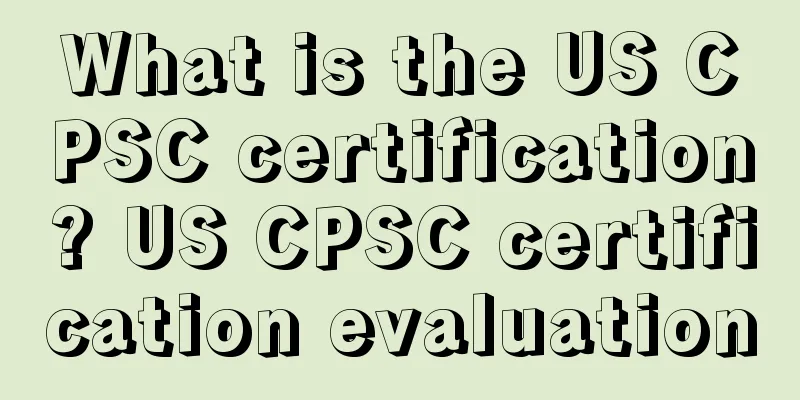What is the US CPSC certification? US CPSC certification evaluation

|
CPSC is the abbreviation of the U.S. Consumer Product Safety Commission. In addition to specific product controls, such as motor vehicles regulated by DOT, drugs, medical devices, food, cosmetics, etc. regulated by FDA, pesticides, toxic substances, etc. regulated by EPA, most consumer products are regulated by CPSC. Certification categories (1) CPC certification for children's products U.S. law defines "children's products" as consumer products intended for use by children 12 years of age or younger. The following factors are generally considered when determining whether a product is suitable for children under 12 years of age: a) Manufacturer’s statement regarding the intended use of the product, including product labeling b) The packaging, display, or marketing of the product indicates that it is intended primarily for children under 12 years of age c) The product is generally believed to be intended for children under 12 years of age. (2) GCC certification for general products Products suitable for ordinary consumers other than children's products Product Certification According to the CPSC's certification requirements, manufacturers and importers issue relevant certificates based on the test results of CPSC-approved third-party testing laboratories. Importers must issue CPC certificates for imported products, and third-party testing laboratories or third-party institutions can assist manufacturers or importers in drafting CPC certificates. For ordinary products, there is no need to test in third-party laboratories. CPC certificate content a) Product information covered by the certificate: name, model, color, etc. b) Product safety regulations, standards and regulations used for product certification. c) Importer information d) Contact information of the person responsible for maintaining the test results e) Production location and time f) Product testing time and location g) Third-party laboratory information Product Testing (1) Detection type a) Initial certification testing: New products are tested in accordance with regulations and requirements before the first certification and meet the relevant requirements. b) Material change testing: If the material of a product or component is changed later, the product or component needs to be retested as required, and the CPC certificate needs to be reissued. c) Periodic testing: Testing is carried out during the mass production of the product. (2) Is it necessary to test every batch or every product? Manufacturers do not need to test every batch or every product. As long as there is no material change, only periodic testing is required, generally once a year. |
<<: What is Yibai Network? Yibai Network Review
>>: What is Yatego? Yatego Review
Recommend
What is ShareSave? ShareSave Review
ShareSave is Xiaomi's new cross-border e-comme...
What is AuthoritySpy? AuthoritySpy Review
AuthoritySpy is a great link building SEO tool tha...
What is bridenew? bridenew review
Boy London is a British streetwear brand founded b...
Google: 2021 Shopping Guide Top 100 Popular Gift Rankings
▶ Video account attention cross-border navigation ...
What is GlowRoad? GlowRoad Review
GlowRoad is a well-known social commerce network p...
Black Friday ban wave is coming! Comments are gone overnight, and the dream of booming orders during the peak season is shattered!
▶ Video account attention cross-border navigation ...
What is ShopGo? ShopGo Review
ShopGo is a local e-commerce service system in the...
Amazon Black Technology: Teach you how to calculate your competitors' conversion rates
If sellers know the conversion rate of competitor...
What is Reddit? Reddit Review
Reddit is the largest online community in the Unit...
Amazon sensitive words are banned from sale
Today's Share Amazon sensitive words are banne...
Attention! Sellers need to do these things well during the off-season!
The product enters the off-season, traffic begins...
"Lover's Robbery" sellers are severely restricted, Amazon's top 100 sellers are in a furnace!
▶ Video account attention cross-border navigation ...
JD.com adds new warehouse in California to promote two-day delivery service in the US
It is learned that on March 20, JD.com released a ...
How do Amazon sellers prepare for the peak season during the pandemic?
2020 was a difficult year for cross-border sellers...
Chinese freight forwarders are sanctioned by the United States! 95 freight forwarders are blacklisted!
The logistics circle has experienced several majo...









